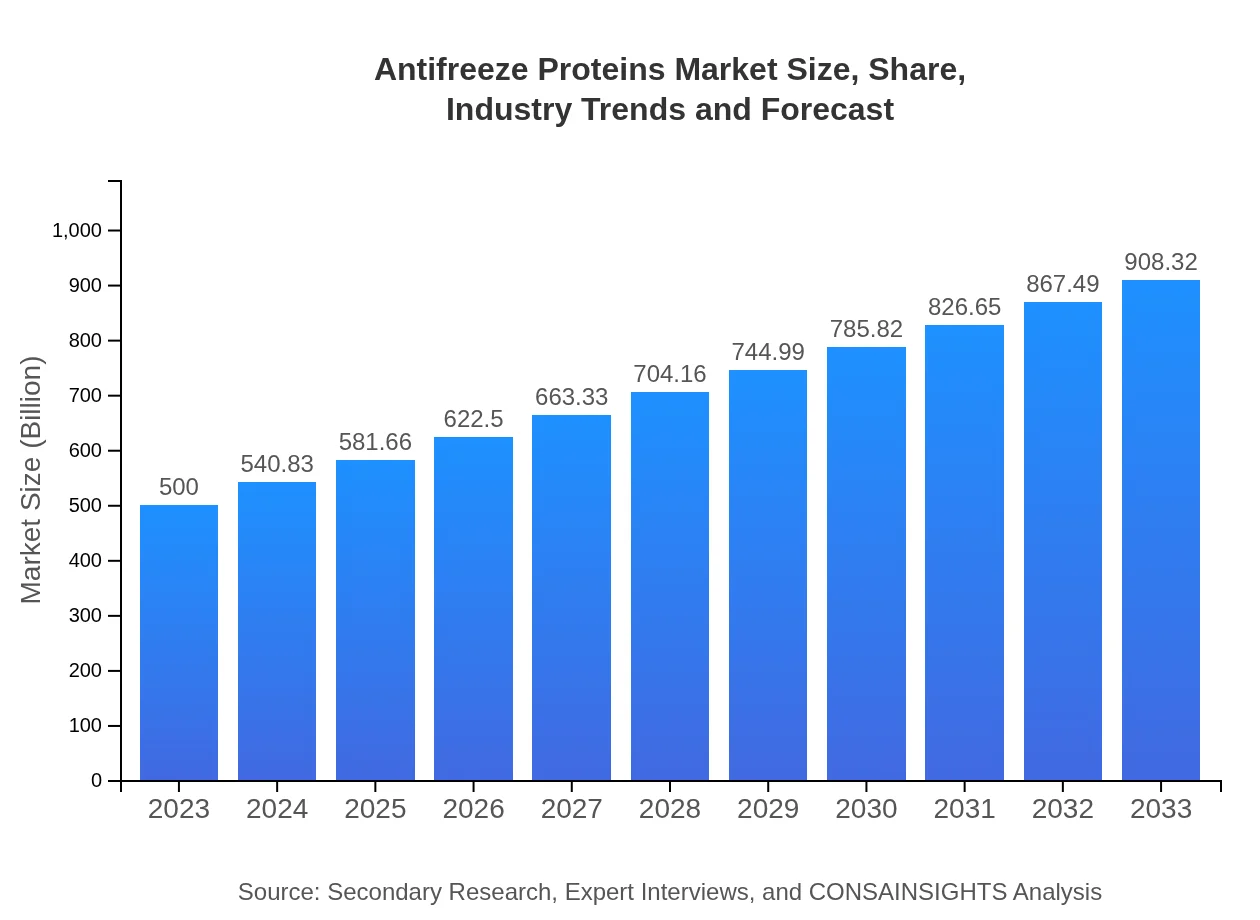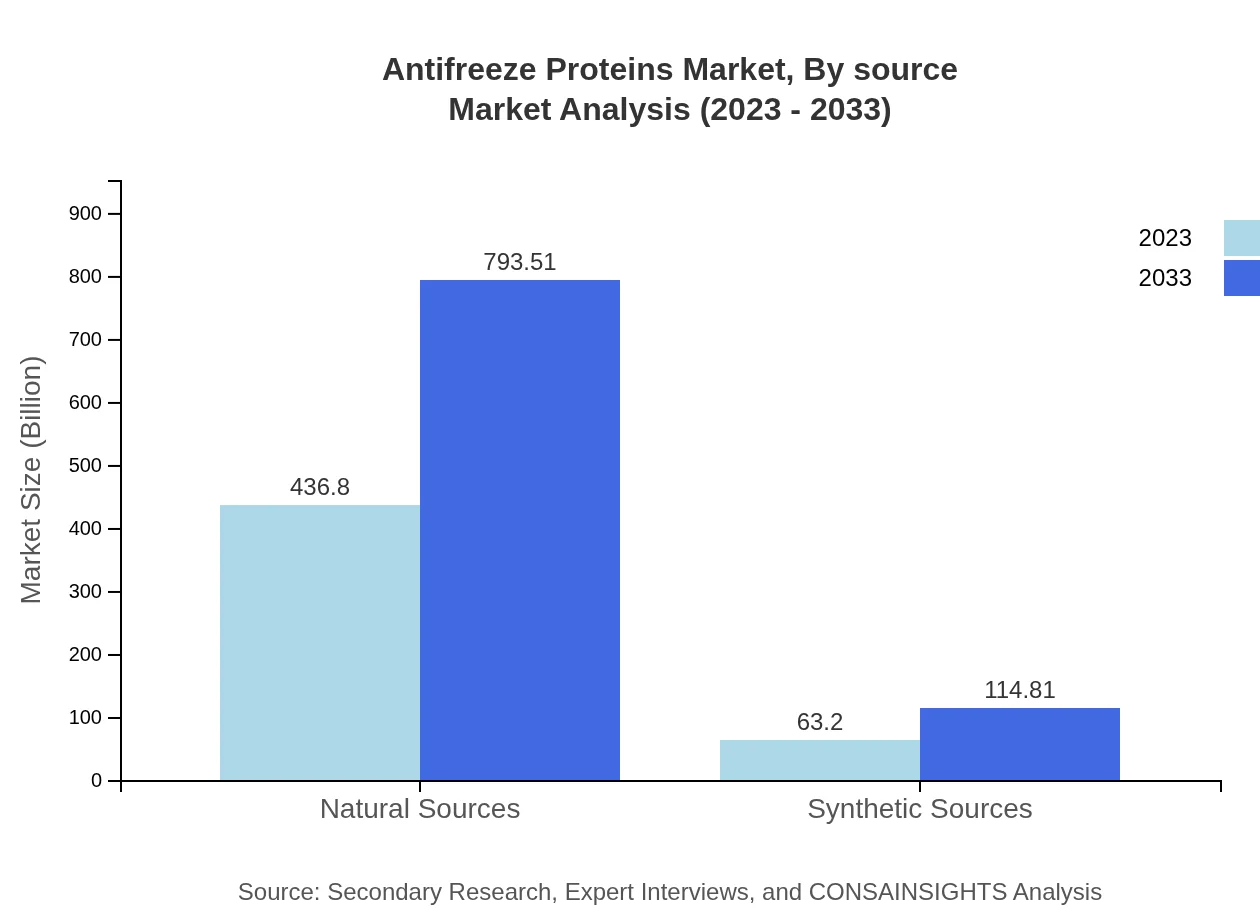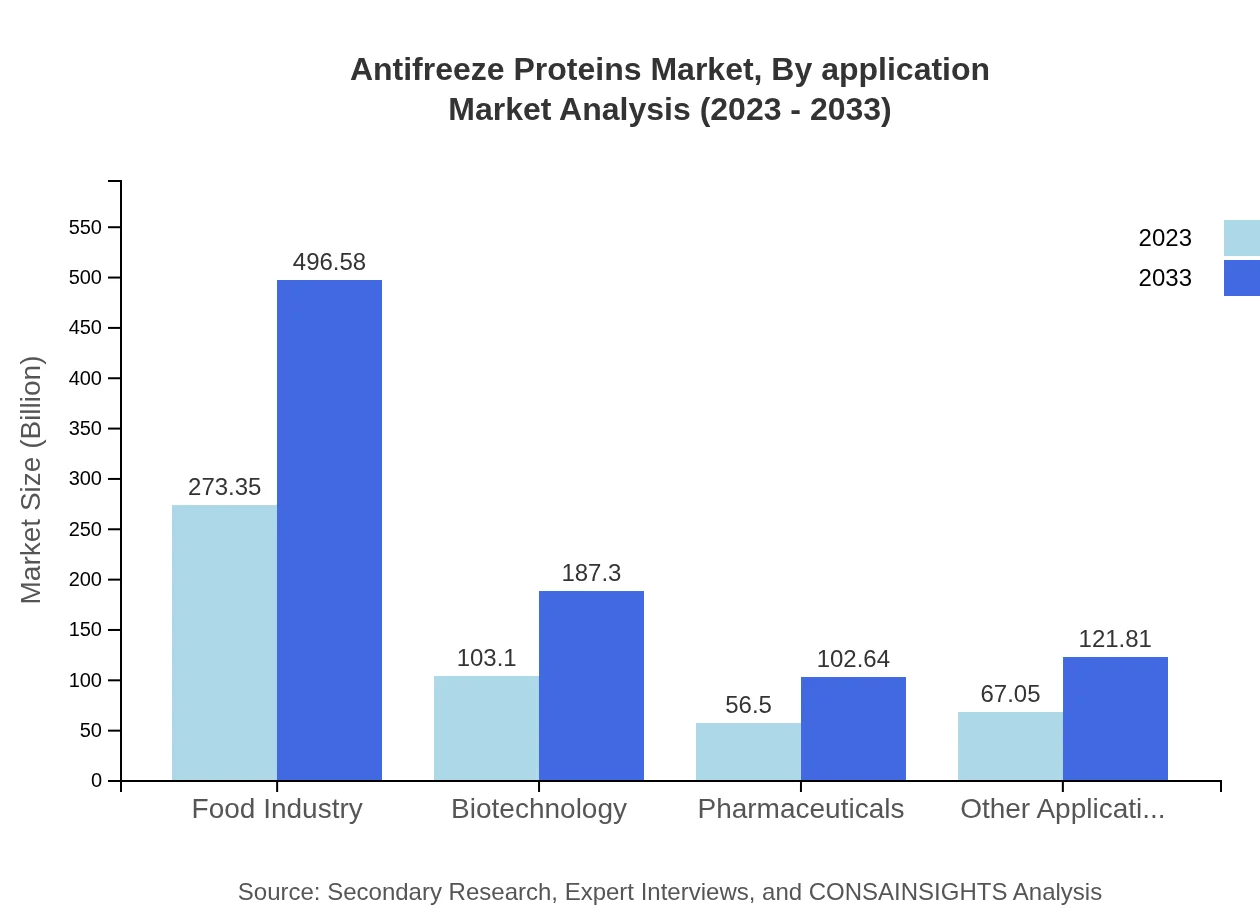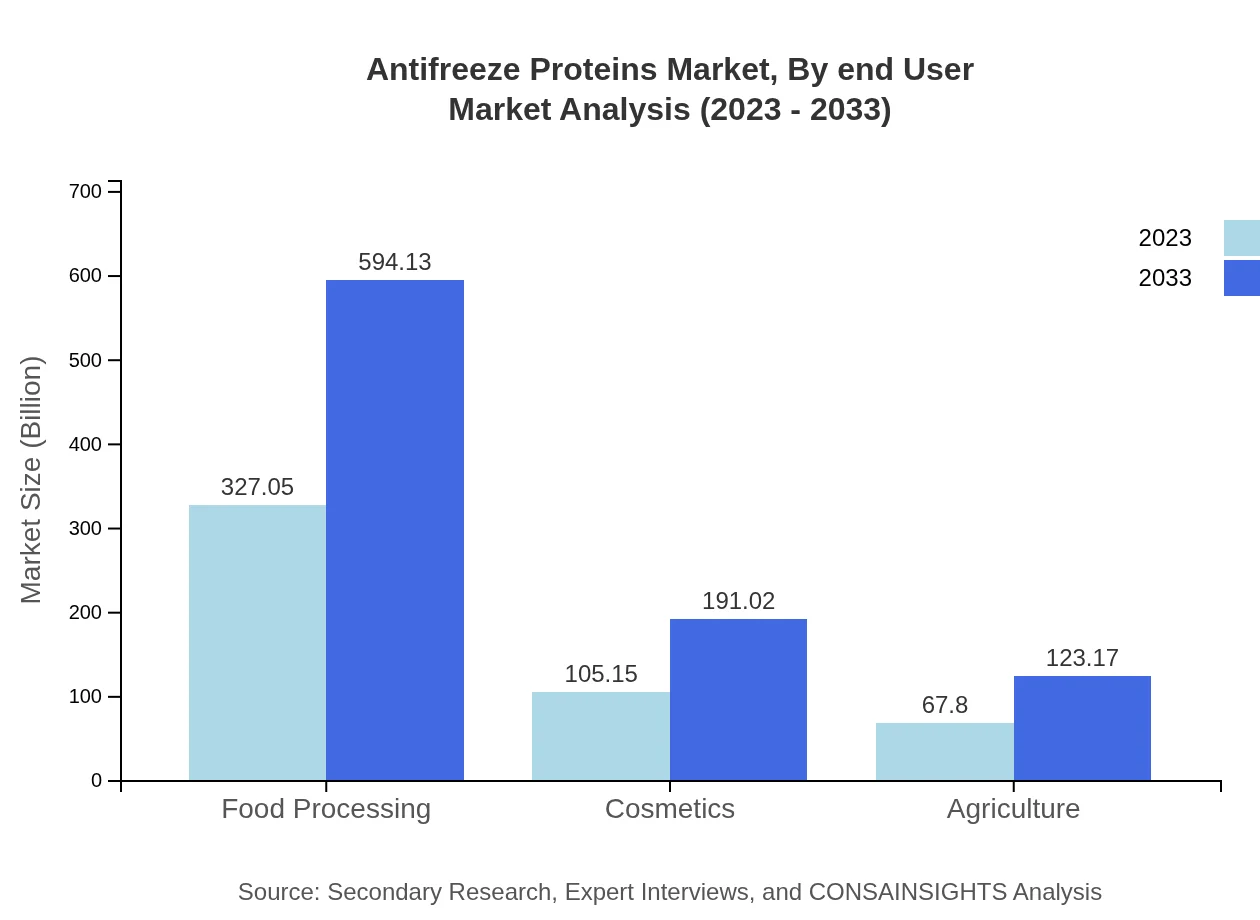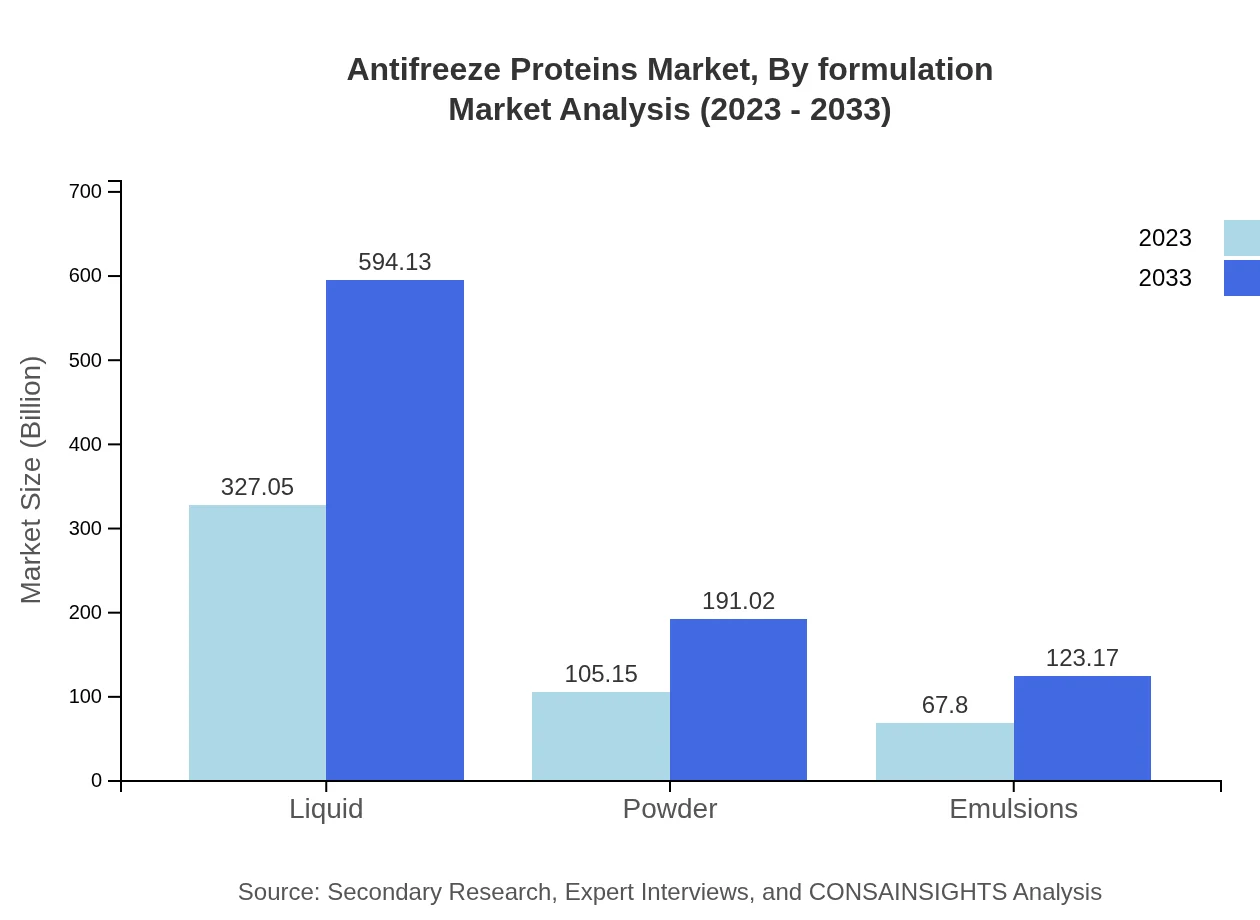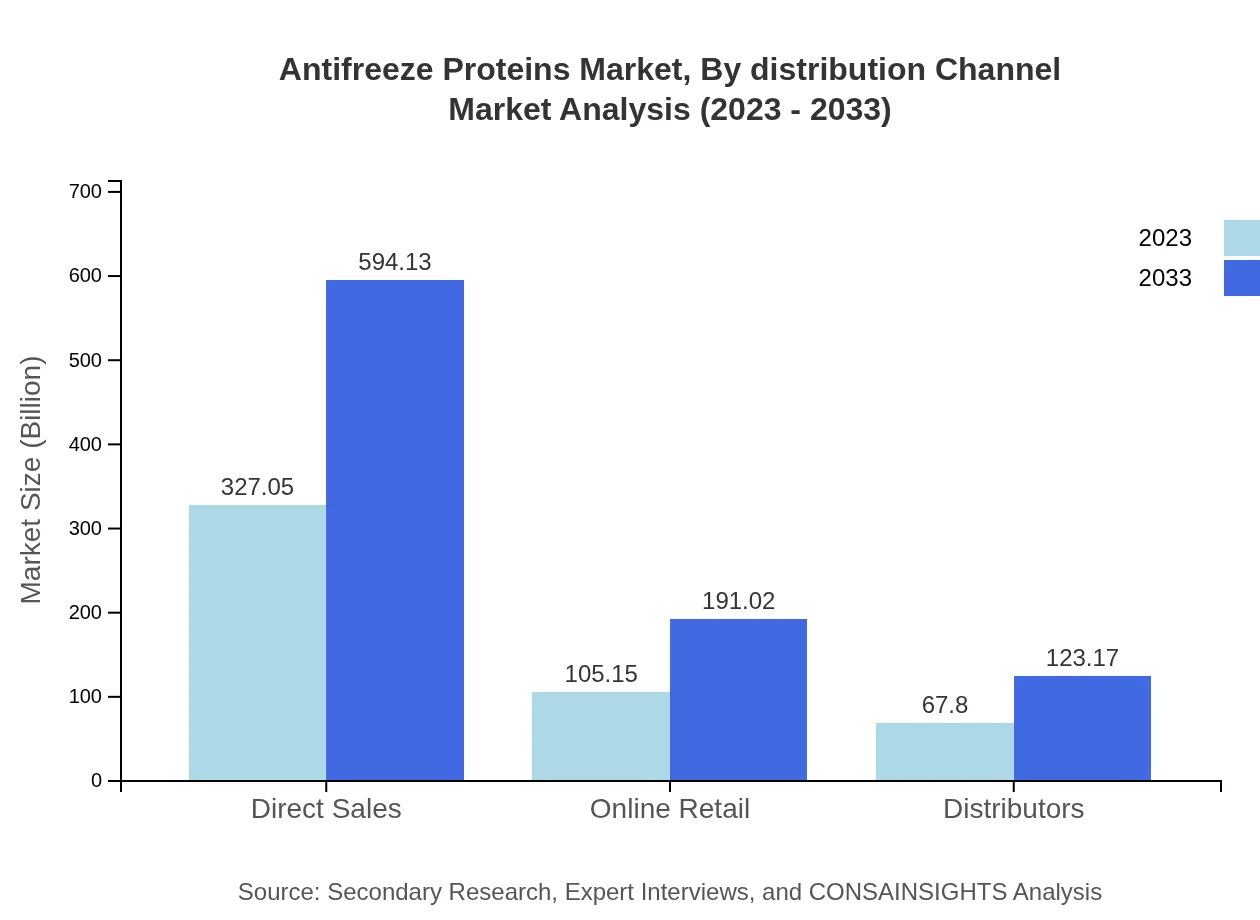Antifreeze Proteins Market Report
Published Date: 31 January 2026 | Report Code: antifreeze-proteins
Antifreeze Proteins Market Size, Share, Industry Trends and Forecast to 2033
This report provides a comprehensive analysis of the antifreeze proteins market, highlighting current trends, market sizes, and forecasts for growth from 2023 to 2033 across various segments and regions.
| Metric | Value |
|---|---|
| Study Period | 2023 - 2033 |
| 2023 Market Size | $500.00 Million |
| CAGR (2023-2033) | 6% |
| 2033 Market Size | $908.32 Million |
| Top Companies | Cargill, Incorporated, Unilever, BASF SE, Novozymes |
| Last Modified Date | 31 January 2026 |
Antifreeze Proteins Market Overview
Customize Antifreeze Proteins Market Report market research report
- ✔ Get in-depth analysis of Antifreeze Proteins market size, growth, and forecasts.
- ✔ Understand Antifreeze Proteins's regional dynamics and industry-specific trends.
- ✔ Identify potential applications, end-user demand, and growth segments in Antifreeze Proteins
What is the Market Size & CAGR of Antifreeze Proteins market in 2023?
Antifreeze Proteins Industry Analysis
Antifreeze Proteins Market Segmentation and Scope
Tell us your focus area and get a customized research report.
Antifreeze Proteins Market Analysis Report by Region
Europe Antifreeze Proteins Market Report:
With a market size of $127.80 million in 2023 projected to grow to $232.17 million by 2033, Europe remains a pivotal market. Increasing interest in organic and health-focused products enhances the demand for antifreeze proteins, driven by regulatory support for biotechnological advancements.Asia Pacific Antifreeze Proteins Market Report:
In 2023, the Asia Pacific market for antifreeze proteins stands at $107.55 million, projected to grow to $195.38 million by 2033, translating to a significant market shift. The region's growing biotechnology and food industries are key contributors to this growth, alongside increasing R&D initiatives.North America Antifreeze Proteins Market Report:
North America currently holds the largest share of the antifreeze proteins market, valued at $180.15 million in 2023, and expected to expand to $327.27 million by 2033. The region's strong pharmaceutical and food processing sectors are driving demand, alongside a high level of investment in biotechnology.South America Antifreeze Proteins Market Report:
The South American antifreeze proteins market is anticipated to rise from $28.75 million in 2023 to $52.23 million by 2033. The agricultural sector's interest in freeze-tolerance solutions is a major factor, supported by growing food safety standards in the region.Middle East & Africa Antifreeze Proteins Market Report:
The Middle East and Africa market is set to grow from $55.75 million in 2023 to $101.28 million by 2033. Efforts to modernize agricultural practices in this region require new solutions to combat climate challenges, enhancing the relevance of antifreeze proteins.Tell us your focus area and get a customized research report.
Antifreeze Proteins Market Analysis By Source
The antifreeze proteins market by source consists of natural and synthetic proteins. In 2023, natural sources dominate the market at $436.80 million, holding an 87.36% share. By 2033, this segment is projected to reach $793.51 million. Synthetic sources, while smaller at $63.20 million in 2023 (12.64% share), show potential growth to $114.81 million by 2033 as technology improves production methods.
Antifreeze Proteins Market Analysis By Application
Applications of antifreeze proteins vary widely, with food processing leading the segment. Estimated at $327.05 million in 2023 and expected to reach $594.13 million by 2033, food processing encapsulates the highest share at 65.41%. Other growing applications include cosmetics ($105.15 million in 2023) and pharmaceuticals ($56.50 million), showcasing the versatility of antifreeze proteins.
Antifreeze Proteins Market Analysis By End User
The end-user segmentation includes food industry, biotechnology, agriculture, and pharmaceuticals. The food industry leads with a significant market of $273.35 million in 2023. Stakeholders in biotechnology are predicted to experience growth from $103.10 million to $187.30 million by 2033, indicating the rising integration of antifreeze proteins in research and application.
Antifreeze Proteins Market Analysis By Formulation
The market is further divided into liquid, powder, and emulsions. Liquid formulations are prominent, valued at $327.05 million in 2023, with a strong growth trajectory to $594.13 million. Powdered formulations, while smaller ($105.15 million), provide concentrated solutions for specific applications, while emulsions play an essential role at $67.80 million, both growing steadily.
Antifreeze Proteins Market Analysis By Distribution Channel
Distribution channels include direct sales, online retail, and distributors. Direct sales, at $327.05 million in 2023, dominate the market due to established relationships with major industries. Online retail is showing increasing relevance, growing from $105.15 million, as digital sales channels expand their reach and efficiency.
Antifreeze Proteins Market Trends and Future Forecast
Tell us your focus area and get a customized research report.
Global Market Leaders and Top Companies in Antifreeze Proteins Industry
Cargill, Incorporated:
A major player in the agri-food sector, Cargill is investing in antifreeze proteins for food preservation and processing, providing innovative solutions with minimal environmental impact.Unilever:
Well-recognized for its sustainability initiatives, Unilever incorporates antifreeze proteins in various cosmetic products, enhancing their formulation against temperature fluctuations.BASF SE:
BASF is heavily invested in biopolymers, including antifreeze proteins, focusing on applications in pharmaceuticals and food industries for preservation and stability.Novozymes:
A leader in biotechnology, Novozymes focuses on innovative production processes for antifreeze proteins, particularly for food and agricultural applications.We're grateful to work with incredible clients.









FAQs
What is the market size of antifreeze Proteins?
The global market size for antifreeze proteins is estimated at $500 million as of 2023, with a projected compound annual growth rate (CAGR) of 6% from 2023 to 2033.
What are the key market players or companies in the antifreeze Proteins industry?
Key players in the antifreeze proteins industry include biotechnology firms and specialized manufacturers, focusing on natural and synthetic sources for applications in food processing, pharmaceuticals, and agriculture.
What are the primary factors driving the growth in the antifreeze Proteins industry?
Growth in the antifreeze proteins market is driven by increasing demand in food preservation, advances in biotechnology, and the expanding applications of these proteins in pharmaceuticals and agriculture to enhance product durability.
Which region is the fastest Growing in the antifreeze Proteins market?
The fastest-growing region in the antifreeze proteins market is North America, projected to grow from $180.15 million in 2023 to $327.27 million by 2033, driven by advances in biotechnology and high demand from various industries.
Does ConsaInsights provide customized market report data for the antifreeze Proteins industry?
Yes, ConsaInsights offers customized market report data specifically tailored to clients' needs, ensuring comprehensive insights into the antifreeze proteins market that align with their strategic goals.
What deliverables can I expect from this antifreeze Proteins market research project?
Deliverables include detailed market analysis reports, segment breakdowns, growth forecasts, competitive landscape assessments, and tailored recommendations for strategic decision-making in the antifreeze proteins sector.
What are the market trends of antifreeze Proteins?
Current trends in the antifreeze proteins market include a growing preference for natural sources, innovation in synthetic production methods, and rising applications in food processing, pharmaceuticals, and agriculture.

